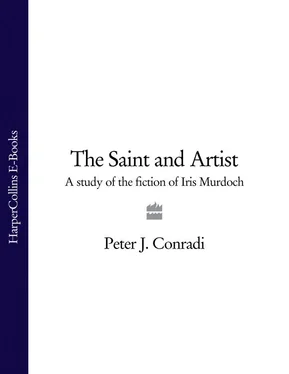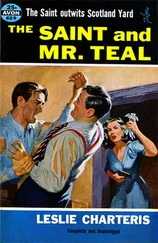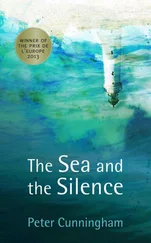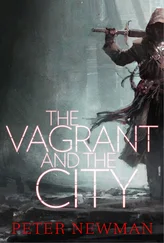In The Philosopher’s Pupil Rozanov describes philosophy as ‘the sublime ability to say the obvious, to exhibit what is closest’ (133). The same might be said, mutatis mutandis, about literature. The pleasure we get from Jake’s observation that if you try to direct a cat’s attention it will look at your finger or elsewhere, but not at what you are pointing to (19); the pleasure we get from his seeing Madge’s defence of Sammy as ‘an unhappy muddled sort of person’ as ‘a standard remark made by women about the men who have left them’ (173) – these seem to me high pleasures exactly because they are humbly true; and, while each belongs naturally within its context, it also works outside its context. If criticism finds no way of saying so, then so much the worse for criticism. Murdoch’s aficion about animals and persons, like the knowledge she incorporates about spiders in Bruno’s Dream, roses in An Unofficial Rose, or pubs and churches in Under the Net, are proper sources of readerly pleasure.
She described herself in different interviews as both a ‘poet manqué and an ‘engineer manqué ’. 13 These are not necessarily to be construed as opposed interests. It is the poetry of irreducible fact that most interested her, a poetry excellently ascribed by Gillian Beer to Dickens, Carlyle and Hopkins as ‘romantic materialism’ – a belief in the palpable and particular, not as insufficient substitutes in some Platonic scheme for their own idea, but as sufficient and even ideal, in all their incompleteness and irreducibility. 14 Murdoch’s Platonism is a this- worldly commodity, and she is concerned throughout her books to redirect the reader’s attention to the sensory world in which he is immersed: ‘I had forgotten about rain,’ says Jake at one point. The books remind us, often through that ‘defamiliarisation’ of the way things are described by the Russian formalist critic Shklovski, who argued that a leading function of art was to de-automatise perception through descriptions which made the ordinary strange and therefore fresh. 15
Lefty tells Jake in the Skinners’ Arms that ‘Nothing goes on for ever,’ and Jake, seeing his Jewish friend Dave at the bar, says, ‘Except the Jews.’ When Lefty concurs, Jake asks him, ‘So you do recognize certain mysteries?’ ‘Yes, I’m an empiricist,’ Lefty jokes (101). It is just such an empiricism, which finds miracle in what is most ordinary, that it is the book’s project, through its chief agent Hugo, to instil. For Hugo each thing is ‘astonishing, delightful, complicated and mysterious’ (58).
Shortly after this passage in the Skinners’ Arms Lefty and Jake wander through the bombed City as the twilight falls.
The evening was by now well advanced. The darkness hung in the air but spread out in a suspended powder which only made the vanishing colours more vivid. The zenith was a strong blue, the horizon a radiant amethyst. From the darkness and shade of St Paul’s Churchyard we came into Cheapside as into a bright arena and saw framed in the gap of a ruin the pale neat rectangles of St Nicholas Cole Abbey, standing alone away to the south of us on the other side of Cannon Street. In between the willow-herb waved over what remained of streets. In this desolation the coloured shells of houses still raised up filled and blank squares of wall and window. The declining sun struck on glowing bricks and warmed up the stone of an occasional fallen pillar. As we passed St Vedast the top of the sky was vibrating into a later blue…(95)
How superb that ‘later’ blue is! The description continues for some pages, and there is in it a freshness and an intense lyricism – a quality beautifully termed by one critic ‘lyrical accuracy’ 16 – that brings the John Piper bombed city-scape alive. The desolation and sweet melancholy of war-torn London – the fading of Empire, perhaps – is echoed by the elegiac processes of the fading daylight, seen with a new strangeness. The light is alive in its sensuousness, a Keatsian commodity with a behaviour entirely of its own.
The search for an ‘unmediated vision’ beyond duality, and the failure of such search – these are great themes in high Romanticism and in contemporary deconstructionism. For the critic Geoffrey Hartman, the poet is seen trying to break through social and other determinants to some ‘unmediated contact with the principle of things’. Hartman’s criticism suffers from a boastful privation in that it constantly shows off about how cheated we must be of any such final contact. To require to exhibit this is perhaps naive. In his Logic Hegel suggests that ‘nothing is absolutely immediate in the absolute sense that it is in no way mediated; and nothing is mediated in the absolute sense that it is no way immediate.’ 17 This commonsensical position is true for Murdoch too.
This is ignored by critics who insufficiently see the openendedness of even her most apparently ‘closed’ novels. Rabinowitz argues that Jake at the end has now learned ‘to accept contingency’. A.S. Byatt writes that Jake ‘is free of his own net of fantasy’ and describes his ‘final enlightenment’. Malcolm Bradbury speaks of his ‘learning a fresh truth’ and of ‘true vision’. 18 This is at odds both with every theoretical pronouncement and also with what is there in the books. On one page of The Sovereignty of Good (23) Murdoch speaks of the effort toward reality as ‘infinitely perfectible’, an ‘endless task’, emphasises ‘inevitable imperfection’ and ‘necessary fallibility’. Again and again she attacked the liberal belief in fast change as false and magical, and opposed to it a truer picture of moral change as piecemeal, unending and in some sense goalless: ‘It would be hard to overestimate the amount of fantasy in any given soul’; ‘even the most piercing sense of revelation accompanying greater awareness of one’s moral position is likely to be partly an illusion.’ 19 The fact that the action of her novels rarely takes longer than a few weeks or months might be counted here as further evidence. ‘We cannot suddenly alter ourselves’ ( SG 39). Indeed the books are at least as much comedies of inveteracy as they are the Advent calendars, packed with moral surprises, that critics have made of them. ‘Creative imagination and obsessive fantasy may be very close, almost indistinguishable forces in the mind of the writer’ (Magee, 1978), and what works for the writer is here true of her characters too. Her famous division between self-flattering fantasy and an imagination which links us to the world needs to be read not as expressing the total discontinuity between the two, but precisely their ambiguous continuity.
Thus Under the Net ends with Jake’s experiencing that thauma (wonder) that impels men to philosophise or create: ‘It was the first day of the world…it was the morning of the first day’ (251). But his sense of renewal carries with it, as it were, no guarantees. What we have is closer to the ending of Ulysses than of Hard Times. Molly Bloom’s decision to make her husband breakfast is a tiny token into which the reader puts as much hope as he feels the signal will bear. So with Jake’s forswearing of classification. Mrs Tinck’s cat, as if sharing the creativity which Jake experiences, has littered. Mrs Tinck is puzzled as to why the kittens should be half pure Siamese and half pure tabby. After some bluster Jake gives in. ‘It’s just one of the wonders of the world,’ he says, in the book’s closing words.
The ending asserts that the world is most apprehensible at those moments when we are calmest about submitting to its inexhaustibility. When we give up the claim wholly to ‘understand everything sympathetically’, we may be rewarded by a vision of the world’s oddness, which the urge to a completed act of comprehension will elude. Once you can admit you don’t fully know, you can begin, a little, to ‘see’.
Читать дальше












